…As Facebook invades our privacy, the rest of us keep giving it away.
During the holidays, Tonya’s mom came to visit and one evening we drove to a nearby community to look at the city park Christmas Lights. A few days later, I posted several images of our trip, including one of Tonya and Becky, on my personal Facebook page. Later, as I perused the pictures, I noticed something odd. Beside the photo of my wife and mother-in-law, a caption read: “Tonya Audyn Stiles and Becky Morton.” There was just one problem; I didn’t write the caption, Facebook did.
How did this happen? I found this explanation, offered by Facebook itself: “When you or a friend upload new photos, we use face recognition software—similar to that found in many photo editing tools—to match your new photos to other photos you’re tagged in. We group similar photos together and, whenever possible, suggest the name of the friend in the photos.”
So Big Brother is indeed watching, and a bit too closely for comfort, I’d say. It made me reassess, yet again, the reasons why I choose to stay on Facebook and even contribute to it from time to time. I had avoided this anti-privacy pit for years, but when The Zephyr went exclusively online, my friends insisted that Facebook was vital to my little cyber-rag’s survival. And in order to create a page for The Z, I had to enroll myself as well.
In the beginning, eager to connect more people to The Zephyr page, I ‘friended’ almost everyone who contacted me, most of them Zephyr readers, well-meaning and mostly goodhearted. I found myself ‘friended’ by people I’d never met and still haven’t met and will probably never meet. Hundreds of almost total strangers. Some have indeed become friends, in the real sense of the word. And in the second decade of the 21st Century, it is part of this new Reality that we will indeed find kindred spirits in people we will never look in the eye or share a handshake.
But regardless of the depth of commitment in a Facebook friendship, we all face this invasion of our privacy together. You’d think that might be the one issue that binds ALL of us. But does it? While we collectively fret over the sinister ways the Dark Ones are poking into our lives, we seem hellbent on beating Facebook to the punch. If the evil eyes we fear can’t discover and exploit our secrets, why not just give them away? In one vast, collective, never-ending purge of our most personal and intimate details and emotions, that is precisely what we’re doing.
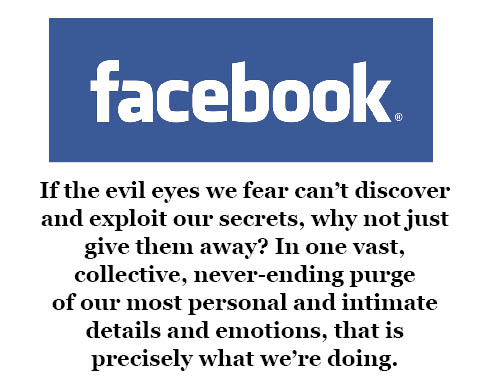
Our objections to privacy invasions are often as credible as Reality Show celebrities complaining about the paparazzi. For all our whinging, we seem to crave the attention that surrendering our privacy invites. For example, the facial recognition epiphany caused me to wonder if I should stop posting images on my page, or if the damage is already done. Do I really want Facebook labeling my pictures for me?
But what about others? Do they want to be identified on my page? Or their own? And how do parents feel about posting photographs of their children? Accepting a process that allows Facebook to scan and analyze the facial features of every child as they grow up is a sobering thought. Imagine a lifetime digitized record, almost from birth, of the facial development of your own children. With your permission. Why?
The willingness to sacrifice the privacy of one’s child leads me to other questions…
Why do we post personal photographs or share personal information with so many people, even if we call them ‘friends’ (in the Facebook meaning of the word)? When Tonya and I got married, we found ourselves sharing our wedding album with hundreds of people we’d never met. Digging through the privacy options, we were finally able to limit access, but with Facebook, it’s an ongoing process, as they continue to alter the privacy settings.
If this were the pre-Facebook era, how many of these same people would we be inclined to send copies of the wedding album?
Or why would parents post ANY photos of their children, regardless of available facial recognition software, when they’re sharing these images with untold numbers of viewers? I know Facebook users who have accumulated thousands of ‘friends.’ But I cannot believe they know all these people well enough to call them friends in any real sense. Do they want to share their babies’ first steps or first words with near total strangers? Would you walk up to people on the street and show them family videos? What’s the point?
And while some Facebook users keep accumulating ‘friends,’ many others don’t bother to establish privacy limits at all. Instead they leave their pages ‘public.’ Why? Why would ANYBODY want to post every personal detail of their lives, and often their loved ones’ lives, for the world, literally, to see?
Why do we allow ourselves to be ‘tagged’ on other pages? Why would any of us relinquish control of our own image or words or even our names to someone else?
Why do we allow others to add posts to our personal pages? On several occasions, I’ve belatedly discovered posts that were either too personal or too acrimonious to tolerate and I deleted them. Often these posts could at least have been sent as a message—why is there such a compulsive need to broadcast opinions on other people’s pages? Why do people feel compelled to use a megaphone to ask a question, when there’s a more personal way to achieve the same goal?
From the time I joined Facebook, I’ve believed that one of its advantages is the opportunity to share information and thoughtful analysis. Much of the news I read comes via links to stories and essays that I find on Facebook. But they shouldn’t cause wars of words to break out. And if posted stories establish a difference of opinion, I would hope that the discussion could at least be civil.
But for example, when I provided links to some stories critical of President Obama’s drone program last year, one of my friends went ballistic and accused me of “turning on Obama,” as if I had betrayed decent people everywhere. Others thought I was supporting Romney. What became apparent after one long rancorous thread of angry comments was that virtually NONE of them had read the story. Their reaction was to the headline and not the thoughtful, intelligent essay I had hoped they’d read.
Finally, why do we feel the need to accumulate Facebook ‘friends’ in the first place? Why do we seek to run up our lists, regardless of how remote or unreal the connection might be to them? What does it mean to be a Facebook friend?
The primary definition of a traditional friend is still: “a person whom one knows and with whom one has a bond of mutual affection.” Common synonyms include, “companion, soul mate, intimate, confidante, second self, and alter ego.” How many of our Facebook friends meet this criteria?
I recently saw a Facebook thread where a fellow was agonizing over his declining friend list. How, he asked, could he see who was ‘un-friending’ him. Dozens of comments followed, offering ways to detect defectors. One woman, incredibly, knew exactly how many ‘friends’ she’d lost. Another urged him to abandon his effort, explaining that it would be “too painful” to know.
Why? How can losing a Facebook ‘friend,’ especially when it’s someone that would otherwise barely qualify as a remote acquaintance, cause such anguish? Recently, I’ve been scaling back my ‘friend’ list, not out of anger or bitterness, but because I simply do not know, or barely know, who many of these people are and I don’t feel inclined to share the personal details of my life with them. I’m sure they are nice people who have real friends to talk to, just as I do. But I don’t know them.
Sometimes I’ve un-friended people because I was uncomfortable with the amount of information about themselves they were making available. In an odd way, I felt voyeuristic, even though it was their choice to be so visible.
And in a couple of instances, I ended Facebook ‘friendships’ because I had nothing in common with people I’d first thought might share similar values. One person kept sending me messages long after I made it clear we weren’t the kindred spirits she perceived us to be. I barely knew her but I tried to avoid the ‘un-friending’ process; in the end, however, disconnecting was the only way to stop the one-sided conversation. I just got tired of the messages. Call me mean and grumpy. I can live with it.
In the end, these issues are as much about what we are willing to give away as they are about what unknown forces are trying to steal from us. Don’t get me wrong. I loathe the NSA, believe Edward Snowden should have been TIME magazine’s ‘Person of the Year,’ (though I do like the Pope), and stand foursquare behind any genuine movement that opposes the demolition of our right to privacy. Most of us recognize and understand the threat, so why are we so willing to provide aid and comfort to the enemy? Because on Facebook, that’s what we do, 24 hours a day.
Jim Stiles is Founder and Co-Publisher of the Canyon Country Zephyr.
To read the PDF version of this article, click here.
To leave a comment on this article, scroll to the bottom of the page.
Don’t forget the Zephyr ads! All links are hot!


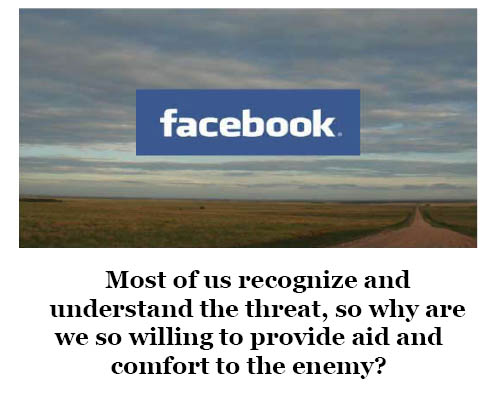
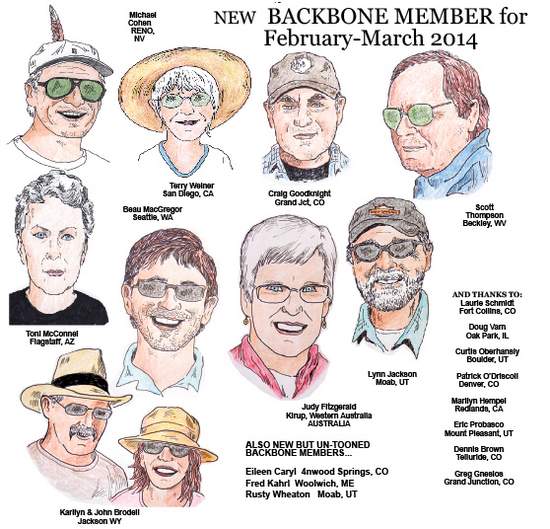
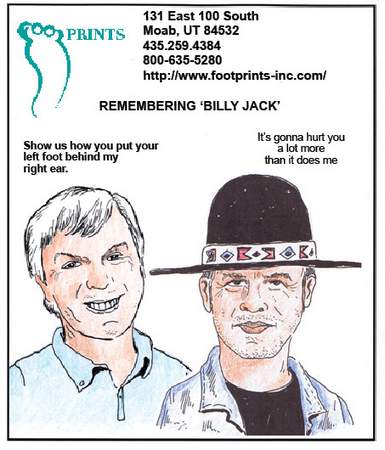
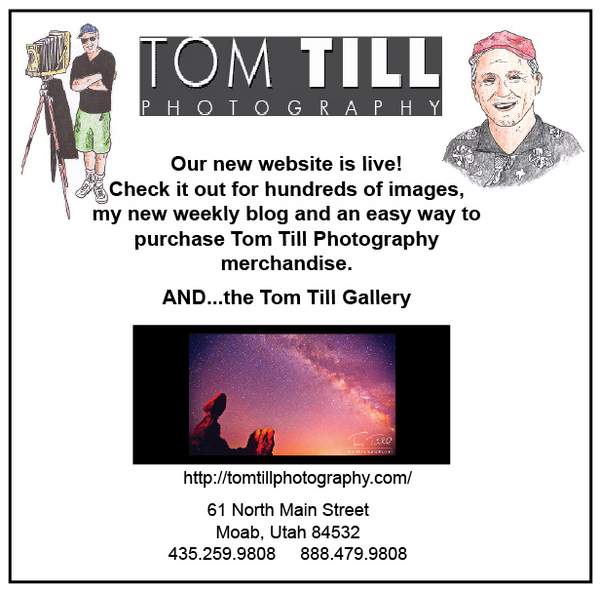
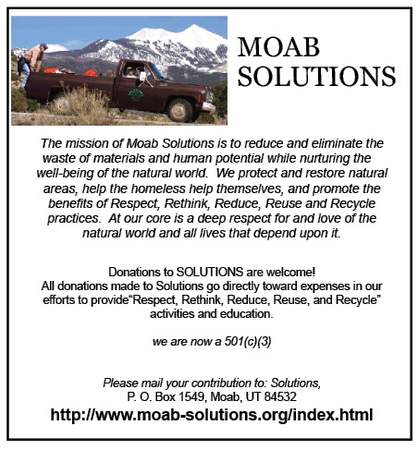


Jim, yer such a grump! Once again, you’ve entered my mind and said what I didn’t even know I was going to say but would have said… if I hadn’t already dropped out of Facebook so many years ago for the same reasons you have articulated. Yay the Zephyr!
Excerpt from Edward Abbey’s The Brave Cowboy:
“The booking officer typed for a minute. ‘Where’s your papers?’ he said.
‘My what?’
‘Your I.D. – draft card, social security, driver’s license.’
‘Don’t have none. Don’t need none. I already know who I am.'”
I appreciated your write up on “is it worth it?” —right on. thank you…please, encourage people to see how painful this is for parents, friends, lovers left behind. :0.
One thing is for sure – Social Networking perniciousness will get worse. Here in Anchorage, The Anchorage Daily News and The Alaska Dispatch will not post blog comments from people who do not have a Facebook account. Not only is this a suppression of free speech but it is a form of censorship wherein the likes of Facebook decides what gets and what does not get printed. Government agencies also are relying more and more on Social Networking. My view is that technology is fundamentally bad, and we are waking up to an inane world where our lives are being dictated by technocrats who have no idea of where their creations will lead. Our big brain has killed us – most of us don’t realize it yet..
i agree….